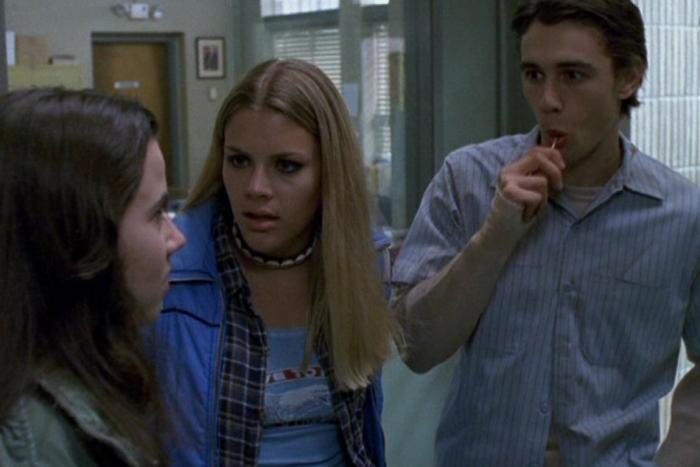Read through enough social studies experiments and your view of humanity inevitably grows more jaundiced. We all know our species has its foibles and shortcomings, but modern researchers have found ways to tease apart each shameful emotion—honing in on the specific biological mechanisms that make us jerks, cataloguing and quantifying our base nature. A tumor is awful from a distance, as a generality. Zoom in closer, perform a few studies, and you confront the cells in all their uniquely horrific, malignant glory.
Take flattery. Academics define it as “lavish praise that is offered in an ingratiation setting”—a nice compliment when the person giving it may have something to gain. A closer look, though, reveals that a complex series of emotions, most of them unsightly, bubble to the surface whenever someone says a kind word about another human being.
There have been plenty of studies on the way that flattery works on the object of praise (in a nutshell: we like it). A recent study by Elaine Chan and Jaideep Sengupta published in the Journal of Consumer Research, though, delved into the effects that merely observing someone receive a fulsome compliment can have.
Specifically, the researchers were interested in non-suspicious flattery. This isn’t the clearly fake, instantly enraging sycophancy of the salesperson on commission assuring a customer he looks fantastic in that pair of saggy-crotched khakis, and, also, how about a cool vest to go with it? No, Sengupta and Chan are interested in our reactions to relatively sincere flattery, the kind where we feel the person actually deserves the compliment and the flatterer has little to gain.
In one experiment, they asked 85 undergraduates at Hong Kong University of Science and Technology to complete some market research for a fictional new footwear store named ROVO. First, participants filled in a simple personality survey and were told they would get some feedback. After completing the questionnaire, however, researchers informed them that there unfortunately wasn’t enough time for feedback. In order to give the students a general idea about what the process would have been like, they were instead asked to read the assessment of another (fictional) person who had allegedly just finished the same study.
Here, the “target of flattery” is the unknown test-taker. In half the cases, this person was said to be another student—a peer of the participants. In either case, however, the researchers laid it on thick. “Your responses show us that you possess an excellent personality,” the note read. “You are clearly an extremely well-balanced, multi-talented individual.”
After reading the praise, the participants evaluated the store in two ways: on implicit measures (by taking five seconds to rate the store on a scale of 1-9) and explicit measures (by taking pen and paper and responding with as much time as they needed). They were also asked to indicate their general mood and whether or not they felt envious.
The results showed that when respondents thought they were reading kind words about a fellow student, they had a much less complimentary implicit view of the store. When the target of flattery was someone similar, the observer felt envious.
The researchers argue that merely observing someone else being flattered makes us compare ourselves to the object of praise. Kind words about others make us seethe. This makes us dislike the person being flattered, but that feeling also transfers over to the person innocently paying the compliment. It’s the “kill-the-messenger-effect.” Envy is an ugly emotion. We recognize the dark, unbecoming feelings it provokes, and we immediately resent the flatterer for making us experience them.
Because this study was published in the Journal of Consumer Research—a journal interested to figuring exactly how to get people to buy things—the authors spend some time discussing the implications for marketers. The results would seem to be bad news for salespeople hoping to flatter their customers into making purchases. While a compliment may work on your target, you run the risk of alienating the rest of the store.
Fortunately for capitalism, there are ways to turn this feeling to the salesperson’s advantage. In a separate study, the researchers set out to investigate “whether and when observing sincere flattery can have a persuasive impact. That is, can it make the observer behave in a manner aligned with the flatterer’s interests.”
The researchers presented students with a hypothetical situation in which a salesperson compliments a fellow shopper’s fashion sense. The students were then asked to choose between two pairs of jeans: a comfortable, standard pair, and a more stylish, expensive pair. The assumption is that the salesperson would prefer that you buy the more expensive pair.
The flattery creates a complex brew of feelings. Envy is negative, but it has an aspirational side to it: you may dislike the target of the flattery, but you also want to become them, hoping to “reduce the unpleasant sensation by closing the gap” between the two of you.
In the experiment, then, observers went through warring emotions. Envy of the other shopper should drive the observer to buy the expensive jeans and become more stylish. At the same time, a dislike of the salesperson would make the observer less likely to buy the nice pants. In a putrid mixture of envy, resentment, covetousness, and spite, which would emerge strongest?
The researchers argue that over time, animosity towards the salesperson becomes dissociated from the decision about whether or not to buy the jeans. You forget the link between the two, but your acquisitiveness endures. Envy, in other words, would outlast resentment.
The results supported this theory. When they measured decisions immediately after the compliment, there was no difference between the control group and the group that witnessed flattery. When there was a delay, however, the envious shoppers became more likely to go for the expensive pair.
The study provided hope to those looking to turn humanity’s petty jealousies and insecurities into dollars. Given the right circumstances, with enough patience and study, it’s possible to find the lever that makes us both feel awful about ourselves and open our wallets.
Studies Show runs every Thursday.






